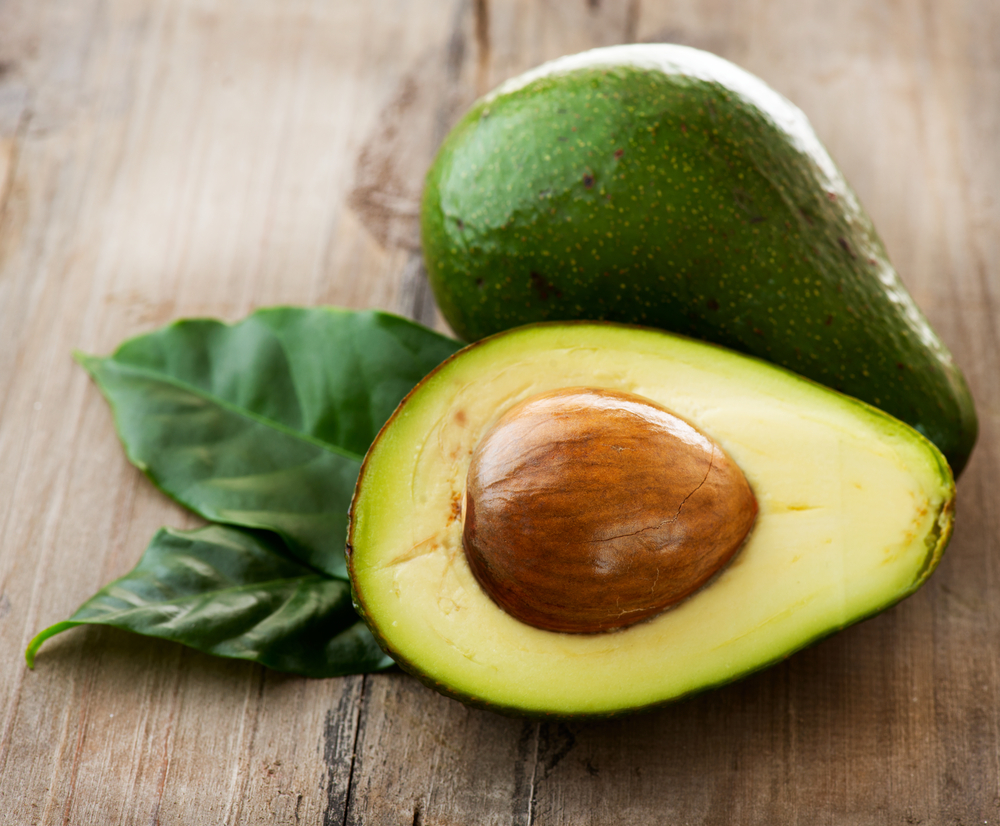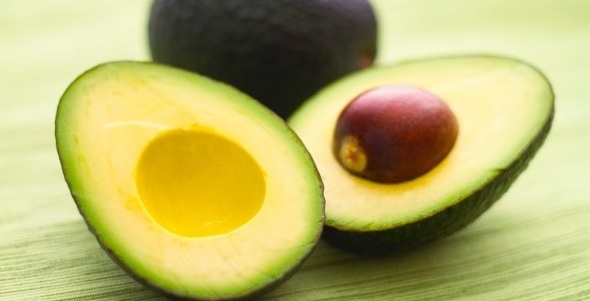Avoid temptation during your cut with this fruit.
With summer right around the corner, a lot of you have probably started getting prepared to cut. Cutting refers to the time period where an individual will be switching up training routines and dietary choices to cut body fat, but still maintain or build more muscle mass. That being said, the diet of a cut can oftentimes be very strict, with a close eye on protein, fat, and carbohydrate intake. However, there are certain foods that can help you through your cut to not go completely insane, and one of them is avocados.
That’s right, avocados can help you get through your cut. Let’s take a look at how!
Avocados for Cutting Weight
Avocados are so much more than just the main ingredients in guacamole, and they are a great food for cutting weight. Fresh Hass avocados have 3 grams of total carbohydrate, less than 1 gram of natural sugar per one ounce serving (the least amount of sugar per serving than any other fresh fruit) and contribute 8% of the daily value (DV) for fiber. Each serving of nutrient dense fresh avocado is also a source of naturally good fats. Avocados can also strengthen your immune system. Avocados are also jammed with antioxidants and they also help your body absorb key nutrients. Eating fresh avocados can significantly increase the absorption of beta-carotene, as well as boost the conversion of pro-vitamin A (the inactive form of the vitamin) to vitamin A (the active form), according to a 2014 study. Vitamin A is a potent antioxidant that supports healthy skin, vision and immune function.
Avocados not only are a great food for cutting, but may also help lower blood pressure. The fruit is loaded with more potassium than a banana. Research shows that upping the intake of potassium reduces blood pressure in people with hypertension and is associated with a 24 percent lower risk of stroke. They’re rich in glutathione, which research shows is a powerful antioxidant, detoxifier, and free radical scavenger. They’re an underrated health food with wide-reaching benefits.
Many Americans are overeating saturated fats, but by replacing unhealthy saturated fatty acids in the average American diet with healthier unsaturated fatty acids found in avocados can lower the risk of cardiovascular disease. In fact, new research published today in the Journal of the American Heart Association shows that consuming an avocado a day may be the key to keeping bad cholesterol at bay. The researchers found that eating one avocado daily as part of a heart-healthy, moderate-fat diet helps improve “bad” (LDL) cholesterol levels in people who are overweight and obese. In the study, participants between the ages of 21 and 70 were put on three different cholesterol-lowering diets: a low-fat diet without avocado, a moderate-fat diet without avocado, and a moderate-fat diet that included one avocado per day.The diet breakdown were as follows:
- Low fat diet: 6 to 7 percent of energy from saturated fat from the typical American diet was replaced with complex carbohydrates mainly from grains.
- Moderate fat diet: 6 to 7 percent of energy from saturated fat from the typical American diet was replaced with monounsaturated fat mainly from high oleic acid oils (sunflower oil and canola oil) and some low-fat dairy products.
- Avocado diet: Similar to the moderate fat diet, but 6 to 7 percent of energy from the saturated fat was replaced with monounsaturated fat mainly from one fresh avocado daily (~ 136 g, without skin and seeds).
The Super Fruit Study
After spending five weeks on each diet, study participants who consumed the moderate-fat diet with avocado had lower levels of bad cholesterol. What’s more, the avocado group showed improvements in their total cholesterol and triglyceride levels. The researchers found that only the avocado diet significantly improved the ratio of total cholesterol to HDL, or “good” cholesterol (TC-HDL/C) and the ratio of LDL, or “bad” cholesterol, to HDL-cholesterol (LDL-C/HDL-C). The low fat diet did not reduce these ratios, and the reduction with the avocado diet was significantly greater than with the moderate fat diet. Additionally, the avocado diet achieved the greatest reduction in LDL-cholesterol compared to the low fat diet and moderate fat diet without avocados. The study offers several possible explanations as to why the moderate fat diet with avocado had a more beneficial effect on certain biomarkers than the moderate fat diet without avocado, one of which may be the unique combination of vitamins, minerals, fiber, phytosterols, and other dietary bioactives that avocados provide that were not present in the other two diets. One fact worth noting is that the diet that included avocado provided 35 percent more fiber than the diets without avocado. Furthermore, these results are based on the consumption of one whole avocado each day. Additional research is needed to determine whether the results could be replicated with consumption of the recommended serving size of ⅕ of an avocado per day.
As if that weren’t enough, here are more reasons why the avocado is such an amazing piece of produce: They can help overweight people feel fuller longer. Avocados can help stave off the munchies between lunch and dinner. A 2013 study in Nutrition Journal found that overweight adults who ate one half of an avocado at lunch had a 40 percent decrease in the desire to eat again over the next three hours. For some, the feeling of fullness lasted a full five hours. The pilot study, “A Randomized 3×3 Crossover Study to Evaluate the Effect of Hass Avocado Intake on Post Ingestive Satiety, Glucose and Insulin Levels, and Subsequent Energy Intake in Overweight Adults,” compared the effects of incorporating fresh Hass avocado into a lunch–either by replacing other foods or by simply adding it to the meal– to the effects of eating a standard lunch to determine how avocado consumption would influence satiety, blood sugar and insulin response and subsequent food intake. The subjects were 26 healthy, overweight adults.
Researchers found that participants who added half of a fresh avocado to their lunch reported a significantly decreased desire to eat by 40 percent over a three-hour period, and by 28 percent over a five-hour period after the meal, compared to their desire to eat after a standard lunch without avocado. In addition, they reported increased feelings of satisfaction by 26 percent over the three hours following the meal. Avocado is one food that all athletes should be consuming on a regular basis.
Food for Cutting Wrap Up
Overall, when it comes to cutting weight, you do not have to make it an unbearable task. You are able to switch up some of the foods you eat and find great tasting foods that can still help you with your cut. One of the best foods for your cut is avocado.
Do you have avocado in your diet?
For more news and updates, follow Generation Iron on Facebook, Twitter, and Instagram.
References:
Kopec RE, Cooperstone JL, Schweiggert RM, et. Al. Provitamin A carotenoid absorption and conversion from a novel high ?-carotene tomato and from carrot is enhanced with fresh Hass Avocado. J Nutr. 2014.
Wien M, Haddad E, Oda K, Sabaté J. A randomized 3×3 crossover study to evaluate the effect of Hass avocado intake on post-ingestive satiety, glucose and insulin levels, and subsequent energy intake in overweight adults. Nutrition Journal 2013, 12: 155. DOI:10.1186/1475-2891-12-155.
Fulgoni VL, Dreher M and Davenport A. Avocado Consumption is Associated with Better Diet Quality and Nutrient Intake, and Lower Metabolic Syndrome Risk in US Adults: Results from the National Health and Nutrition Examination Survey (NHANES) 2001-2008. Nutrition Journal. 2013; 12:1 (2 January 2013). DOI: 10.1186/1475-2891-12-1.
David Heber, MD, PhD, UCLA. Hass Avocado Eaten with Cooked Hamburger Meat Modulates Postprandial Vascular Reactivity and Postprandial Inflammatory Responses in Healthy Volunteers.
Food and Function. DOI: 10.1039/C2FO30226H.
Dreher ML, Davenport AJ. Hass Avocados Composition and Potential Health Effects. Critical Reviews in Food Science and Nutrition. February 2012. DOI:10.1080/10408398.2011.556759
Li Wang, PhD; Peter L. Bordi, PhD; Jennifer A. Fleming, MS, RD; Alison M. Hill, PhD; Penny M. Kris?Etherton, PhD, RD. Effect of a Moderate Fat Diet With and Without Avocados on Lipoprotein Particle Number, Size and Subclasses in Overweight and Obese Adults: A Randomized, Controlled Trial. J Am Heart Assoc. 2015; 4: e001355
Robbie Durand has been in the sports supplement and bodybuilding industry for 15 years. He has contributed to many national magazines and web sites. He has an M.A. in exercise physiology from Southeastern University and a B.A. in Dietetics from Louisiana State University.










